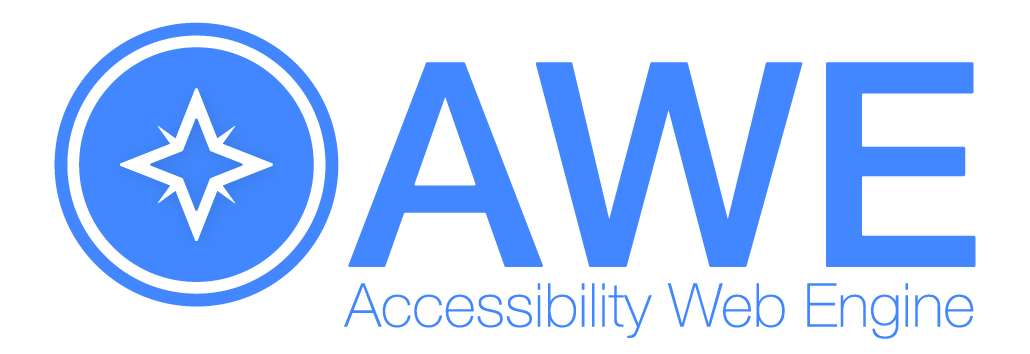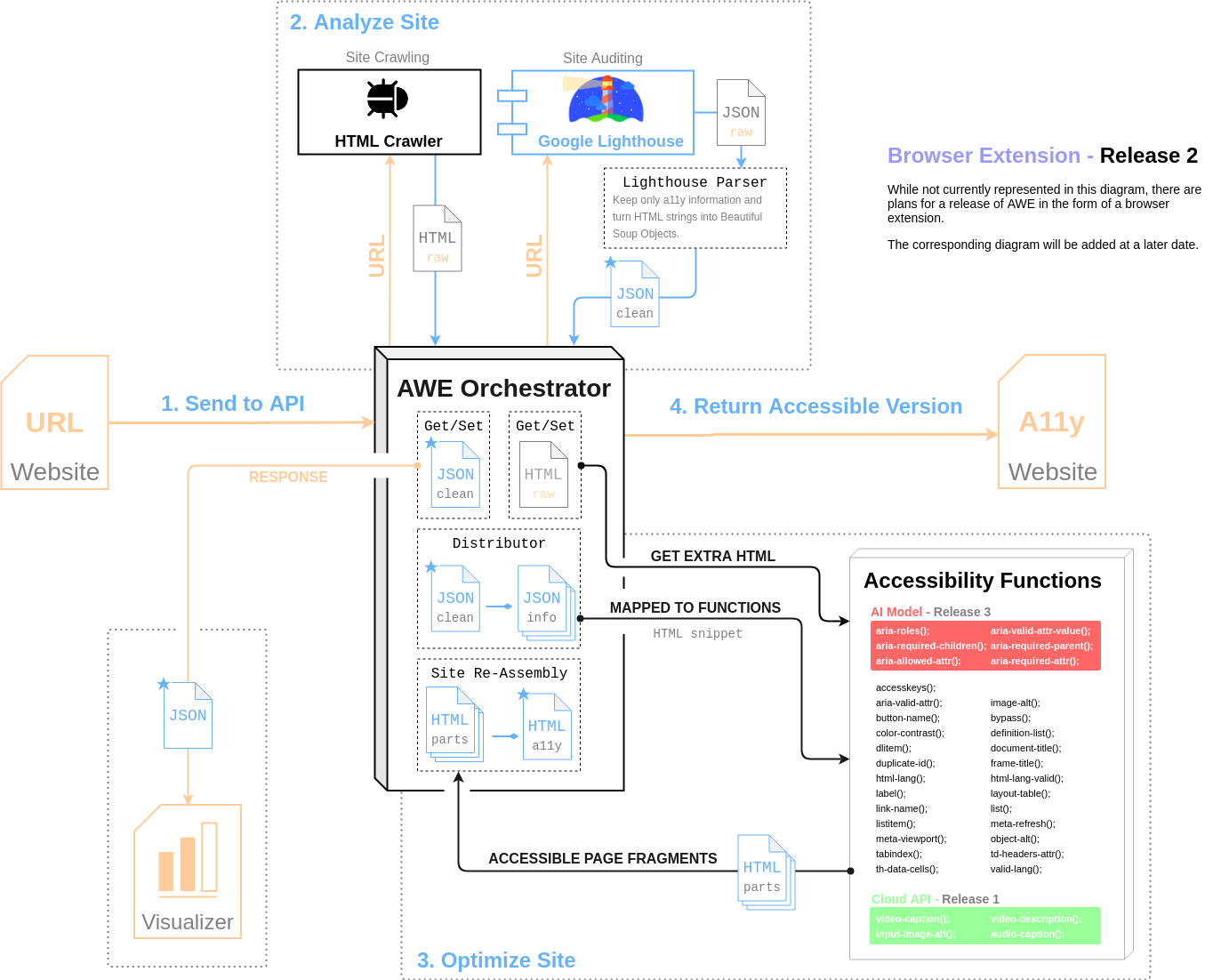The Accessibility Web Engine aims to make the web more accessible by following WACG 2.0 standard.
Although the internet is now over 30 years old, it is still incredibly difficult for some people to navigate. Today with the huge amount of media content available, and with an ever increasing number connected people, it is more important than ever that a strong effort is made to create a more accessible internet.
This project aims to make the internet more accessible through our Accessibility Web Engine API which works by taking the URL of a page, scanning it, and returning a version that reaches or surpassed the WCAG 2.0 AA guideline level.
Have pipenv installed on your machine in order to easily set up the environment.
You will also need to have Node 10.13+ installed in order to be able to run lighthouse.
git clone git@github.com:MaxMonteil/awe.git && cd awe
cp env .env && echo "ROOT_DIR=$PWD" >> .env
pipenv install
npm install -g lighthouse
pipenv run pyppeteer-install
The first line clones the project to your machine and moves you into the folder.
The second line will create the environment variables file specific to your setup using the env file as a template. The part after the && will add the ROOT_DIR variable to the environment which is the absolute path to the awe directory.
If you are on Windows this line might not work, just rename the env file to .env and add a line like this 'ROOT_DIR=\Path\to\the\awe\folder'
The third line runs pipenv which will read the Pipfile and create the python virtual environment.
Finally npm will install lighthouse.
The last line is optional. Run it if you want to install Google Chrome for the project right now, otherwise pyppeteer will do it itself the first time it is run.
Next create a copy of the env file called .env (note the dot) and add in the absolute path to the root directory of awe.
ex: /home/<username/awe
If you get an error from chrome about there not being a usable sandbox try running this command:
sudo sysctl -w kernel.unprivileged_userns_clone=1
It comes from this link: Puppeteer on Github
If running on the Google Cloud instance make sure to set the environment variable ON_GCP to true, this enables running the engine with
pipenv run python app.py
To run the recommended way, with flask, change the host and port to what you need in the .env file and make sure to run the server with the --no-reload flag as this prevents Werkzeug from creating another thread which messes up the async code.
pipenv run flask run --no-reload
In order to apply multiple fixes to a tag before replacing it in the original HTML, each tag is given a pipeline of accessibility functions to go through. This means that all the functions should return their result in the same format they received it.
tag_data = {
"snippet": <class 'bs4.element.Tag'>, # Actual HTML snippet as a Beautiful soup object
"pipeline": <class 'function'>, # Curried function pipeline the tag is going through
"path": (1,0,1,...), # int tuple of the path down the original HTML to the snippet
"selector": "#title", # CSS selector of the snippet
"color": { # Used only by the color-contrast function
"foreground": "FFFFFF", # The foreground and background colors of the snippet text content
"background": "000000",
},
}In order to function as a step in the pipeline here is the function structure to follow:
# example_function.py
def run(tag_data):
snippet = tag_data["snippet"]
# Modifications to the BeautifulSoup tag
...
tag_data["snippet"] = snippet
return tag_data
def helper_function():
...- Python
- Google Lighthouse

